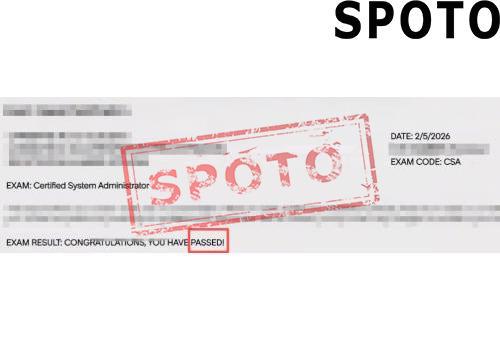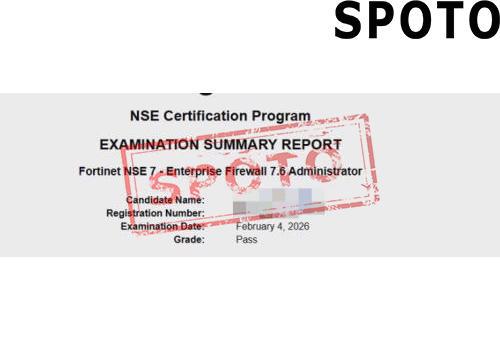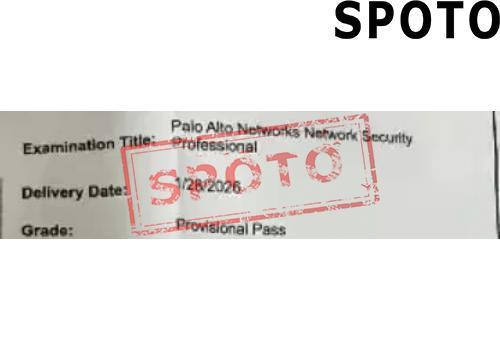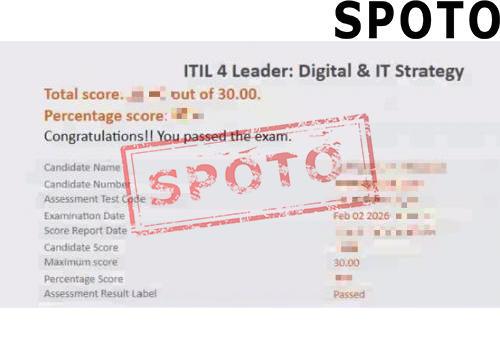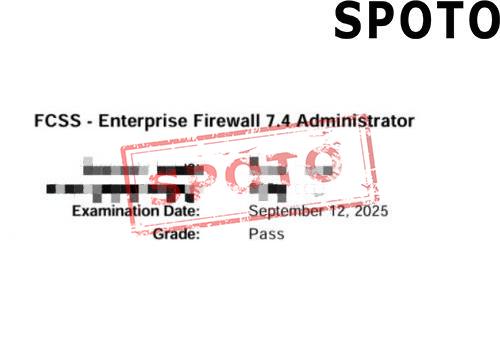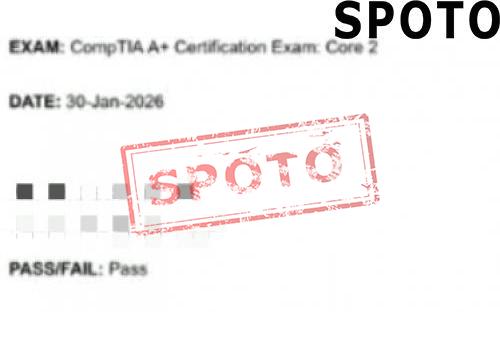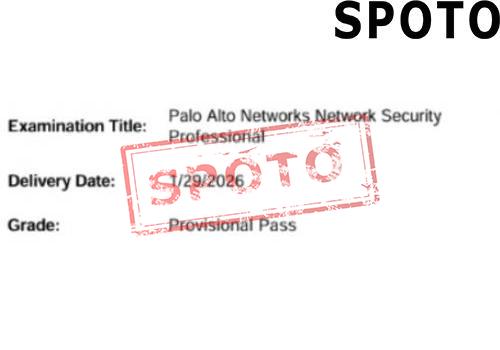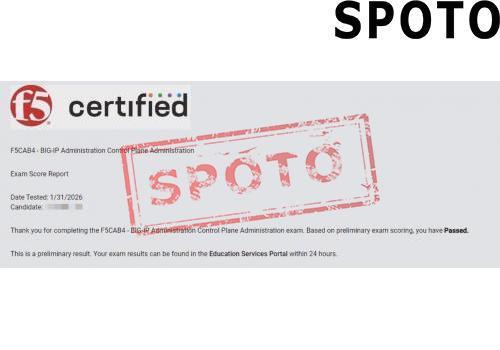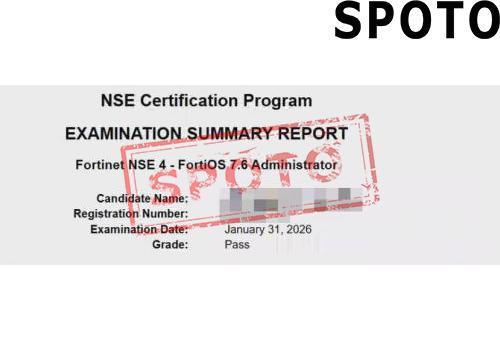
A network certification may provide you with the skills and information required to advance in an IT network career.
Network certifications are credentials that you can obtain to demonstrate that you have the knowledge and skills to work with networks in information technology (IT). They can be vendor-specific (focused on a single company's technology, such as Cisco or Microsoft) or vendor-neutral (the information you learn should be transferable across multiple networking technologies).
If you want to get IT study materials, you should choose SPOTO IT exam dumps to ensure a single success!
Should you acquire a network certification?
Though certificates are not always necessary, they can provide employers with a simple way to certify your skill level. If you believe that obtaining a network certification would give you the necessary abilities to make you more competitive for the jobs or promotions you desire, obtaining a certificate might be a sound approach to invest in your career. If you're just getting started in IT and aren't sure which path to take, consider an entry-level IT certification instead.
Network certification holders can advance their careers as network technicians, network administrators, network engineers, network architects, or other network-related professionals. Network knowledge can also be helpful for some system administration professions.
Certifications for networks
1. Cisco Certified Network Associate (CCNA)
The CCNA is an associate-level (early career) credential that covers various networking fundamentals. It is widely recognized as a network certification standard. Because Cisco is one of the top networking firms, the credential is valuable to many network experts. Cisco also provides certificates at the entry (CCT), professional (CCNP), and expert levels (CCDE).
- Cost: $300
- Requirements: One exam is required. There are no qualifications, although it is advised that you have at least one year of experience working with Cisco solutions.
- Network access, IP connectivity, IP services, security, automation, and programmability are tested.
2. CompTIA Network+ certification
The CompTIA Network+ certification is a vendor-neutral certification that assesses your mastery of networking fundamentals independent of the firm that provides your networking technology. CompTIA also provides the CompTIA A+ certification for those searching for entry-level IT careers, which the Google IT Support Professional Certificate will prepare you for.
- Cost: $338
- Requirements: One exam is required. Although there are no prerequisites, 9-12 months of networking experience or CompTIA A+ certification is encouraged.
- What is being evaluated: Networking fundamentals; cabling, device, and storage technologies; network management; security; and troubleshooting methods and tools
3. Junos Certified Associate - Juniper Networks (JNCIA-Junos)
The JNCIA-Junos is the associate-level Juniper Networks certification. It's the initial step for people who want to pursue more advanced Juniper Networks certifications in data center technologies, enterprise routing and switching, or service provider routing and switching.
- Cost: $200
- Requirements: One exam is required. There are no prerequisites.
- Juno's OS fundamentals, such as software architecture and transit traffic processing, are being tested, configuration basics, routing policies, and firewall filters.
4. Certified Professional by SolarWinds
You can utilize and manage SolarWinds network and system products if you have the SolarWinds Certified Professional credential. SolarWinds products are widely used in fields such as government and accounting.
- Cost: $200
- Requirements: One exam is required. There are no prerequisites.
- Diagnostics, database performance analysis, network configuration, performance monitoring, and network architecture are tested.
5. Aruba Certified Mobility Associate 5th (ACMA)
Some employers may expect you to be familiar with Aruba networking features. The ACMA certifies that you can build, install, and configure a primary Aruba Wireless Local Area Network. There are four other associate-level Aruba certifications (Switching, ClearPass, Design, and Security); obtaining any three of them will qualify you as an Aruba Edge Associate.
- Cost: $230
- Requirements: One exam is required. There are no prerequisites, but candidates are recommended to take an Aruba Mobility Fundamentals course.
- What's being tested: The fundamentals of Aruba WLAN, as implemented by the V8 operating system architecture.
6. VMWare Certified Technical Associate (Network Virtualization) (VCTA-NV)
If you're interested in virtualization, earning the VCTA-NV certification can help you learn the fundamentals of the VMWare NSX network virtualization platform. The certification will assess your fundamental understanding of NSX terminology, graphical user interfaces, and other essential technical abilities.
- Cost: $125
- Requirements: One exam is required. There are no prerequisites.
- What is being evaluated: Installing, configuring, and configuring again; performance tweaking, optimization, and upgrades; core architecture and technologies; planning and designing; troubleshooting.
Creating a career network
Any business that uses computers is likely to require networking expertise. If you want to enter into the sector, an entry-level IT position, such as a help desk technician or IT associate, can be an excellent place to start. An entry-level IT credential, such as the CompTIA A+ or Google IT Support Professional Certificate, will assist you in developing the necessary abilities.
You could then specialize in networks and become a network administrator. From there, you could pursue a career as a network engineer or network architect. Network specialists may also broaden their skill set to work in system administration.


